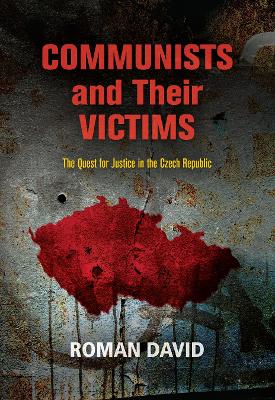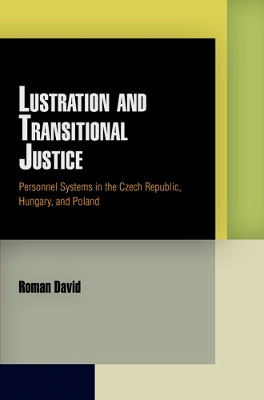Pennsylvania Studies in Human Rights
2 total works
In Communists and Their Victims, Roman David identifies and examines four classes of justice measures—retributive, reparatory, revelatory, and reconciliatory—to discover which, if any, rectified the legacy of human rights abuses committed during the communist era in the Czech Republic. Conducting interviews, focus groups, and nationwide surveys between 1999 and 2015, David looks at the impact of financial compensation and truth-sharing on victims' healing and examines the role of retribution in the behavior and attitudes of communists and their families. Emphasizing the narratives of former political prisoners, secret collaborators, and former Communist Party members, David tests the potential of justice measures to contribute to a shared sense of justice and their ability to overcome the class structure and ideological divides of a formerly communist regime.
Complementing his original research with analysis of legal judgments, governmental reports, and historical records, David finds that some justice measures were effective in overcoming material and ideological divides while others obstructed victims' healing and inhibited the transformation of communists. Identifying "justice without reconciliation" as the primary factor hampering the process of overcoming the past in the Czech Republic, Communists and Their Victims promotes a transformative theory of justice that demonstrates that justice measures, in order to be successful, require a degree of reconciliation.
How do transitional democracies deal with officials who have been tainted by complicity with prior governments? Should they be excluded or should they be incorporated into the new system? In Lustration and Transitional Justice, Roman David examines major institutional innovations that developed in Central Europe following the collapse of communist regimes. While the Czech Republic approved a lustration (vetting) law based on the traditional method of dismissals, Hungary and Poland devised alternative models that granted their tainted officials a second chance in exchange for truth. David classifies personnel systems as exclusive, inclusive, and reconciliatory; they are based on dismissal, exposure, and confession, respectively, and they represent three major classes of transitional justice.
David argues that in addition to their immediate purposes, personnel systems carry symbolic meanings that help explain their origin and shape their effects. In their effort to purify public life, personnel systems send different ideological messages that affect trust in government and the social standing of former adversaries. Exclusive systems may establish trust at the expense of reconciliation, while inclusive and reconciliatory systems may promote both trust and reconciliation.
In spite of its importance, the topic of inherited personnel has received only limited attention in research on transitional justice and democratization. Lustration and Transitional Justice is the first attempt to fill this gap. Combining insights from cultural sociology and political psychology with the analysis of original experiments, historical surveys, parliamentary debates, and interviews, the book shows how perceptions of tainted personnel affected the origin of lustration systems and how dismissal, exposure, and confession affected trust in government, reconciliation, and collective memory.

